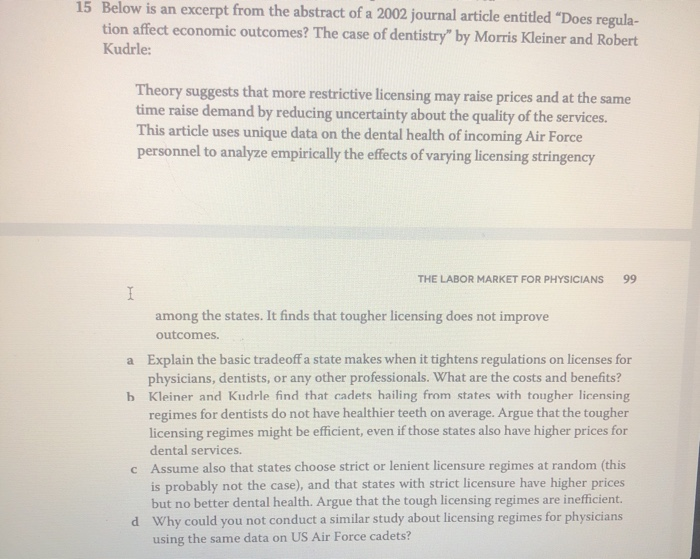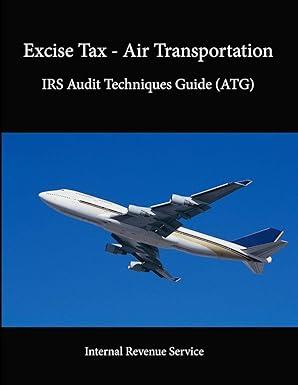15 Below is an excerpt from the abstract of a 2002 journal article entitled Does regula- tion affect economic outcomes? The case of dentistry" by Morris Kleiner and Robert Kudrle: Theory suggests that more restrictive licensing may raise prices and at the same time raise demand by reducing uncertainty about the quality of the services. This article uses unique data on the dental health of incoming Air Force personnel to analyze empirically the effects of varying licensing stringency THE LABOR MARKET FOR PHYSICIANS 99 I among the states. It finds that tougher licensing does not improve outcomes. a Explain the basic tradeoff a state makes when it tightens regulations on licenses for physicians, dentists, or any other professionals. What are the costs and benefits? b Kleiner and Kudrle find that cadets hailing from states with tougher licensing regimes for dentists do not have healthier teeth on average. Argue that the tougher licensing regimes might be efficient, even if those states also have higher prices for dental services. C Assume also that states choose strict or lenient licensure regimes at random (this is probably not the case), and that states with strict licensure have higher prices but no better dental health. Argue that the tough licensing regimes are inefficient. d Why could you not conduct a similar study about licensing regimes for physicians using the same data on US Air Force cadets? 15 Below is an excerpt from the abstract of a 2002 journal article entitled Does regula- tion affect economic outcomes? The case of dentistry" by Morris Kleiner and Robert Kudrle: Theory suggests that more restrictive licensing may raise prices and at the same time raise demand by reducing uncertainty about the quality of the services. This article uses unique data on the dental health of incoming Air Force personnel to analyze empirically the effects of varying licensing stringency THE LABOR MARKET FOR PHYSICIANS 99 I among the states. It finds that tougher licensing does not improve outcomes. a Explain the basic tradeoff a state makes when it tightens regulations on licenses for physicians, dentists, or any other professionals. What are the costs and benefits? b Kleiner and Kudrle find that cadets hailing from states with tougher licensing regimes for dentists do not have healthier teeth on average. Argue that the tougher licensing regimes might be efficient, even if those states also have higher prices for dental services. C Assume also that states choose strict or lenient licensure regimes at random (this is probably not the case), and that states with strict licensure have higher prices but no better dental health. Argue that the tough licensing regimes are inefficient. d Why could you not conduct a similar study about licensing regimes for physicians using the same data on US Air Force cadets







